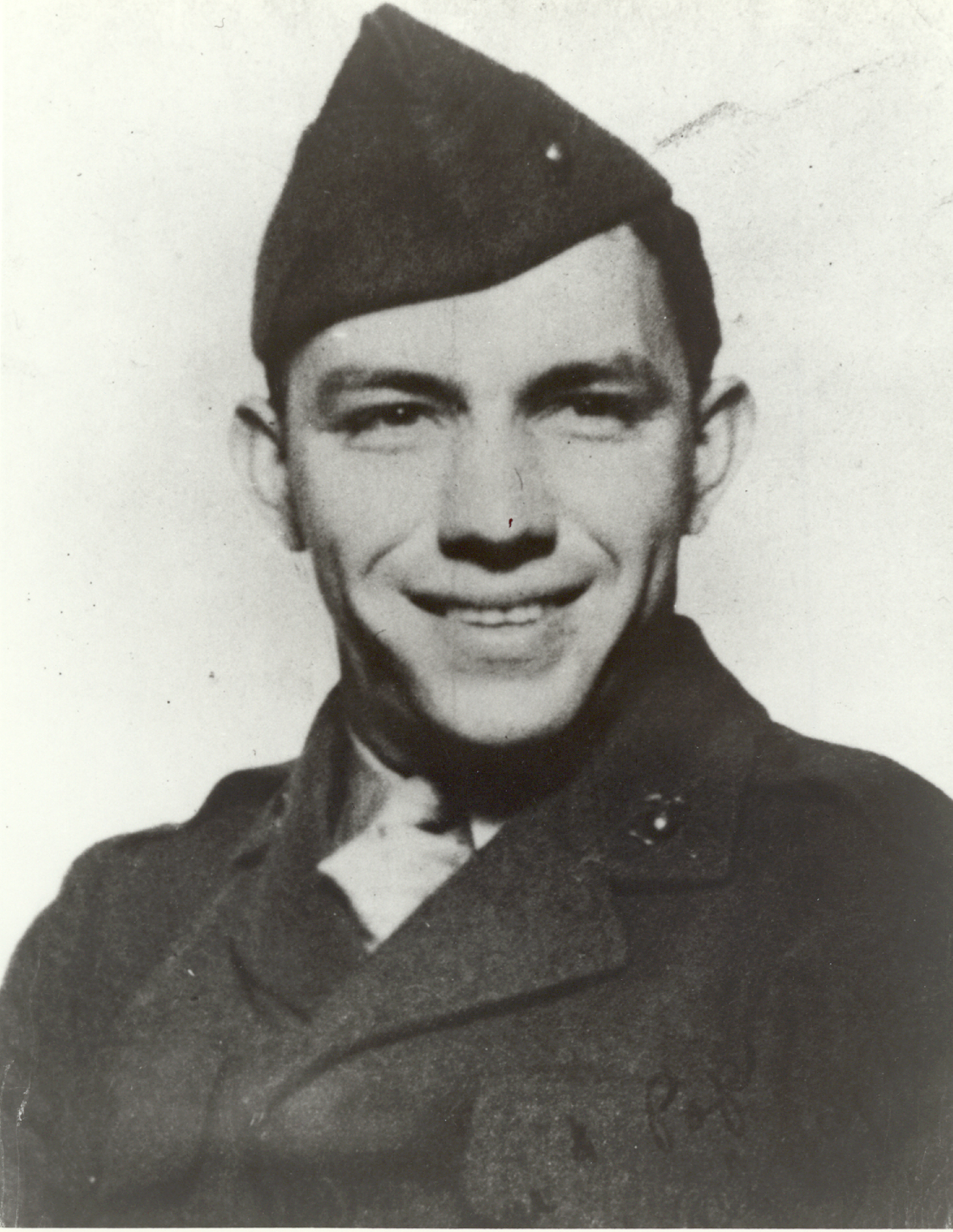
PRIVATE
ROBERT MILLER MCTUREOUS, JR., USMC (DECEASED)
Medal of Honor Citation
Private Robert Miller McTureous, Jr., 21, had been a Marine for only nine months when on 7 June 1945, on Okinawa, although critically wounded, he instantly risked his own life to divert fire from a group of his wounded comrades. He died at sea four days later of massive wounds and loss of blood.
Robert Miller McTureous, Jr., was born in Altoona, Florida, on 26 March 1924. He attended the primary schools of Altoona and graduated from high school at Umatilla, Florida, in 1941. He attended Brewton-Parker Institute at Mount Vernon, Georgia, for one year majoring in mathematics and was on the football and baseball teams. Also participating in softball, tennis and boxing, he also played the trombone, sang with the Glee Club and with the Double Quartet while at Brewton-Parker. His hobby was building model airplanes and in 1942 he served as a Sunday School Superintendent.
Returning to Altoona, he went to work as a night watchman in an orange-packing house at Umatila for three months. Classified as 4F by his local Draft Board, he looked for a better job in order that he could raise enough money to have an operation to correct his disability. Two operations were necessary and the young man underwent them always with the view of getting into the service when he was able. For the last eight months that he was a civilian, he worked as a rodman on a surveying team, engaged in road construction for the Florida State Highway Department. Examined again in August 1944, he was found fit and his induction into the Marine Corps followed on 31 August.
Private McTureous was sent to Parris Island, South Carolina, for his recruit training and emerged with a good record. He qualified as a sharpshooter with both the M-1 rifle and the Browning Automatic Rifle by virtue of his 291 and 112 scores, respectively. In his General Classification Test, Pvt McTureous recorded a neat 132 while his Mechanical Aptitude Test was accomplished with a score of 131.
After a ten-day furlough, his only one, the new Marine reported to the 4th Training Battalion at Camp Lejeune, North Carolina, in November. A month later he was assigned to the 46th Replacement Draft there, and in March 1945 that unit moved to Camp Pendleton, California. Pvt McTureous left the United States on 11 March. Enroute to their destination, the Marines got a look at some of the places that had been making headlines since 7 December 1941. The first stop was Pearl Harbor and the next Eniwetok. They arrived and disembarked at Guam on 31 March and went into rigid combat training.
While the 46th was learning a few tricks of jungle warfare, an island named Okinawa was invaded by U.S. Marines on 1 April. When the need for replacements became apparent, Pvt McTureous' draft was sent. They arrived at Okinawa on 15 May and plunged into the fighting as a unit. It was 31 May before the Floridan became attached to a permanent organization. He joined Company H, 3d Battalion, 29th Marines (H/3/29) of the 6th Marine Division, and finally felt that he belonged to something stable, a real Marine rifle company.
Seven days after joining H/3/29, Pvt McTureous took part in the capture of an important hill on Oroku Peninsula. The company suffered several casualties during the assault and enemy fire remained so heavy that the wounded Marines could not be evacuated. His platoon was temporarily pinned down. Realizing that the wounded must be removed to the rear and the heights must be taken, Pvt McTureous, without any orders or suggestions from anyone, filled his pockets with grenades, jammed more of the explosives inside his dungaree jacket, and charged up the hill and into the enemy position where he knew the accurate rifle and machine-gun fire was coming from.
Running among the caves, the 68-inch, 138-pound ex-football player tossed grenades into the Japanese positions as Marine stretcher-bearers came forward to remove the wounded during the temporary lull caused by his furious one-man assault. His supply of hand grenades exhausted, he returned to his own lines, took on another load and returned to the caves, smashing his deadly charges into the enemy positions. Passing one cave, he was badly wounded in the stomach but instead of calling for help and risking other men being hit in attempts to rescue him, he stoically crawled 200 yards to a sheltered place within the Marine lines before asking for aid. His actions completely silenced the Japanese, killing six of them and so badly disorganizing the remainder of the savage garrison, that his own company was enabled to occupy the hill and complete its mission. The earlier wounded were also evacuated to safety due to his heroic self-sacrifice. Pvt McTureous was removed to a hospital ship, the USS Relief, and given large quantities of blood in an attempt to save his life, but all efforts failed and on the morning of 11 June he died at sea. His remains were buried in the 2d Marine Division Cemetery on Saipan. Later, in 1949, his remains were reinterred in Glendale Cemetery, Umatilla, Florida.
The Medal of Honor, his Country's highest award, was presented to Pvt McTureous' parents at a ceremony in Altoona on 7 August 1946. The presentation was made by LtCol Alexander A. Vandegrift, Jr., USMC, Commanding Officer, Marine Barracks, Naval Air Station, Jacksonville, Florida, the son of the Commandant.
World War II 1941-1945 Medal of Honor